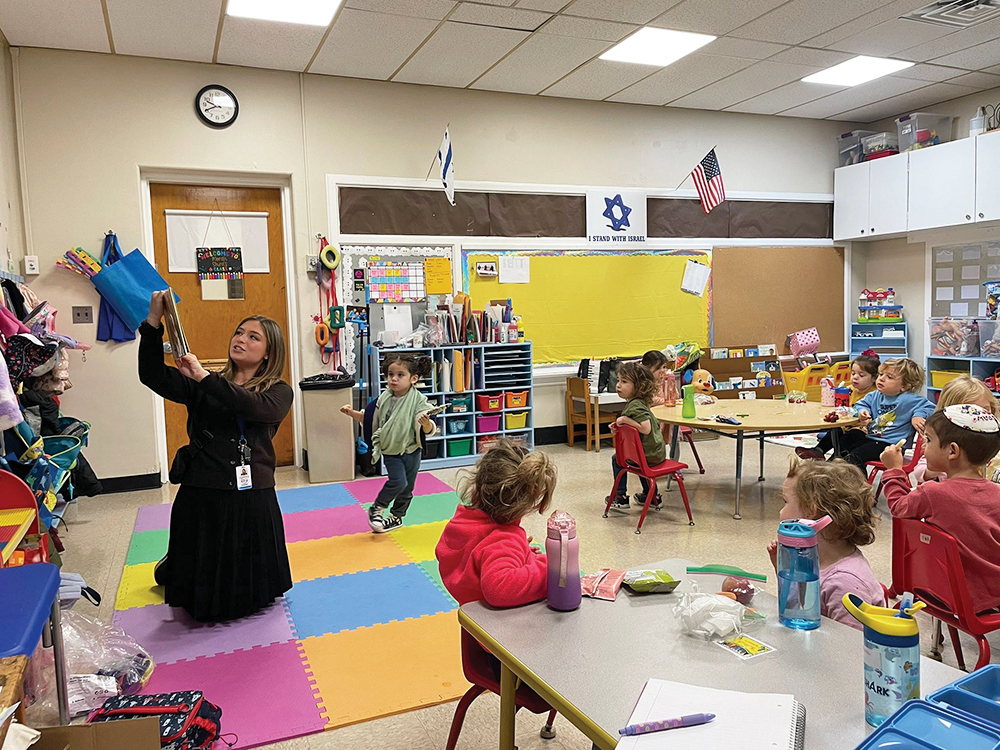
Reviewing: ‘Shomer Emunim: The Introduction to Kabbalah’ by Rabbi Yosef Ergas and Avinoam Fraenkel. Urim Publications. 2021. English. Hardcover. 1080 pages. ISBN-13: 978-1602804494.
When a sefer’s core text is described by Torah giants such as Rabbi Chaim Volozhin as being a valuable and authoritative guide to Kabbalah, and it has—along with its introduction, translation and accompanying commentary—already received haskamot (approbations) from such impressive Torah scholars as Rabbi Herschel Schachter, Rabbi Moshe Zuriel, Rabbi Mendel Kessin, Rabbi Yechiel Barlev, Rabbi Mordekhai Chriqui, Rabbi Meir Triebitz, Rabbi Yitzchak Benzecry and Rabbi David Daniel HaCohen, there seems little that I—someone with little knowledge or understanding of Kabbalah—can add to emphasize its spiritual benefits or intellectual worth.
However, it is precisely because I am a Torah seeker with little knowledge of Kabbalah, yet also someone with a genuine hunger to understand authentic Kabbalistic teachings and principles, that I am an ideal learner of “Shomer Emunim,” which, along with the accompanying notes and essays penned by Rabbi Avinoam Fraenkel, is an extraordinary addition to the Jewish bookshelf.
For those unfamiliar, “Shomer Emunim” is the title of a sefer written by Rabbi Yosef Ergas (Italy, 1685-1730) who was born just 9 years after the death of Shabtai Tzvi, and whose goal it was to provide crystal clear explanations of Kabbalistic teachings and ideas that had been misunderstood and misrepresented. It took Rabbi Ergas five years to write Shomer Emunim, and it was first published six years after his death in 1736.
“Shomer Emunim” is divided into two parts, both of which are structured as a dialogue between She’altiel (the questioner) and Yehoyada (the knower). In Part 1, She’altiel is a skeptic and needs convincing about the authenticity of the Kabbalah. In Part 2, She’altiel is now convinced, and he then asks Yehoyada to explain a variety of key Kabbalistic concepts to him.
Until now, “Shomer Emunim” has never been translated into English, making this invaluable work a closed book to English readers, compounded by the increasing confusion about Kabbalah today. Now, with Rabbi Fraenkel’s translation and extensive commentary, along with his brilliant 50-page introduction and outstanding 300-page “Kabbalah Overview,” so much of what Rabbi Ergas sought to achieve in “Shomer Emunim” in terms of clarifying teachings and ideas that have been misunderstood and misrepresented can be realized for the English speaking world. As Rabbi Fraenkel explains in his introduction:
“Misconceptions abound as to what Kabbalah is. Most confuse it with apocryphal supernatural acts performed by great people that in all likelihood may never have happened… Some related to it as a form of meditation. However, first and foremost Kabbalah is a level of knowledge of the Torah that allows for a deeper understanding of what God is, proficiency in the knowledge of the principles of Judaism, and a significantly enhanced appreciation of how best to perform the Torah commandments, the mitzvot.”
For example, as Rabbi Ergas explains (Shomer Emunim 1:31), those who do not know what God’s Unity is cannot properly fulfill the mitzvah of believing in Unity. Similarly, Rabbi Ergas writes (Shomer Emunim 1:34) that while the Torah speaks in human terms, and while we are told that these statements are not to be understood literally, they can only be truly understood by studying Kabbalistic wisdom. As Rabbi Menachem Mendel of Shklov explains while basing himself on the Zohar and on teachings that he received from his mentor the Vilna Gaon: “When a person properly understands the Sod, then all the Peshat, Remez, Derush and Sod will be understood properly. However, all the while a person does not understand the Sod, then even the Peshat is not clear to him.”
Unfortunately, beyond misunderstandings of specific Kabbalistic ideas, there has developed a growing dismissiveness of Kabbalah in the modern era which, as Rabbi Fraenkel explains, stemmed from the toxic impact that books such as the Nechemia Chiya Chayun’s “Oz Le’Elohim” and Rabbi Yichya Qafich’s “Milchamot Hashem” had on discourse relating to the Kabbalah. And it is precisely because of such misrepresentations, along with the notion—as mentioned by Rabbi Yisrael Salanter and others—that the modern period allows and requires that we engage more meaningfully with Kabbalah, that makes the publication of “Shomer Emunim” so necessary for our time.
Yet in addition to Rabbi Fraenkel’s brilliant introduction, English translation and commentary of “Shomer Emunim” is his 300 page “ Kabbalah Overview,” which over six chapters (1:Worlds, Souls and How to Relate to Them, 2:Sefirot, 3: Sefirot Schemes and Shevirat Hakeilim, 4: Partzufim, 5: Hashgacha, 6: The Bigger Picture and the Messiah’s Identity) provides an extraordinary series of explanations about deep Kabbalistic ideas while using modern analogies, scientific discoveries and frames of reference to help the modern reader. As Rabbi Fraenkel himself relates: “Much to the surprise of this author during composition, the extensive research of many Kabbalistic sources very unexpectedly led to the emergence of a profound new understanding of the significant contemporary relevance of several key concepts of the Arizal’s Kabbalah…Therefore, in addition to the Kabbalah Overview serving in an ancillary capacity to deepen appreciation of ‘Shomer Emunim,’ it should hopefully also serve in a standalone capacity as a source for these new Kabbalistic insights.”
Overall, Rabbi Avinoam Fraenkel’s edition of “Shomer Emunim” is a masterpiece of scholarship where the crystal clear teachings of Rabbi Ergas are accompanied by the thoughtful and extraordinarily well-researched insights of Rabbi Fraenkel. Together, “Shomer Emunim: The Introduction to Kabbalah” is a compelling work that fulfills not only the goals of Rabbi Ergas, but also explains so much of what we have misunderstood, while helping us reconnect with this essential wisdom as we pray and prepare for the ultimate redemption.
Rabbi Johnny Solomon is a teacher, writer, editor, rabbi and spiritual coach.












